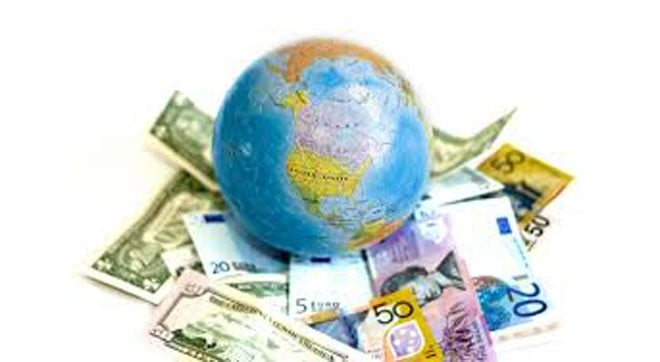
A green card scheme for foreign investors may work wonders for the ailing economy

Discussions on trade and economy always culminate on issues such as severe energy crisis, poor law and order and rampant corruption, but there are several other factors which are the stumbling blocks in the way of economic and industrial development in the country. Governments after governments in Pakistan find refuge in methods of governance which frequently failed in the past. The world is running at a fast speed and using a donkey cart in a car race will bring nothing, but only shame and failure. A country with a population of 190 million can be turned into an attractive destination for international investors if prudent policies are enforced.
The government is claiming that the country’s economy is fast approaching a takeoff position. Since it came to power in 2012, the government has been apparently following an ‘open arms’ policy to attract direct foreign investment. Finance Minister Ishaq Dar seems to be proactive and is on the forefront to invite foreign businessmen to exploit huge investment opportunities in Pakistan. However, every country welcomes foreign investment but the investors want security of life and safety of their capital before taking any decision. Pakistan is at 103rd in the list of countries which are ranked best in doing business. In this situation, no one will take risk to invest money in this country without guarantees and legal assurances that the money is safe and the investment will generate profit.
The economy of Pakistani mostly relies on loans it receives from donor agencies such as the World Bank, the International Monetary Fund, Asian Development Bank and several others. The country has recently received 10th tranche of $550 million from the IMF under a three-year Extended Fund Facility arrangement. The loan has been approved after assurances from the government that it will achieve all the economic targets and will be able to reduce budget deficit within limits besides improving the tax collections. However, it becomes nuisance for the government to meet the conditions attached with the approval of loan and it has to seek waivers which are again allowed with conditions.
Unreal revenue collection targets and over taxation often prove to be disastrous for the overall economic environment in the country. The government managers must know that burdening the business classes with a host of taxes will have negative impact on local and foreign investment in the country. The ambiguous laws coupled with unbridled authority at the official level paves the way for coercive measures against the business community and it leads to capital flight from the country.
As a matter of fact, money laundering has become a flourishing trade in Pakistan and Dubai, Sri Lanka and Ghana have become attractive destination of the country’s black money. Everything is going on under the nose of the corrupt government machinery and no one is there to stop it. Instead of taking coercive measures, the government should improve its position on ‘ease of doing business index’ as Pakistan is a worse country to launch a business venture. If the government is serious in turning the country into an economic figure, it will have to revise outdated economic and financial policies.
The country has a vibrant middle class which can work as an engine of growth for consumer goods industry and it is the best time to promote corporate sector by inviting foreign investors. The China Pakistan Economic Corridor is set bring over $45 billion investment in the country and mega industrial projects along the corridor route.
It is time the government should initiate its own green card scheme for foreign investors. High-tech industrial cities and especially export processing zones should be established in every province of the country for the green card holders and they should be treated as guests of honours with guarantees of their security and sureties of their investments. The foreign investors be given tax free regime and concessions in import and export. We as a nation will have to leave legacy of colonial past and will have to copy an economic model whether it is Japan, China, Korea or Malaysia. The first thing which the government has to do is legislation and second, it has to introduce structural reforms in tax collection set up. Once rules and regulations are adopted, there should be no going back. The practice of putting businessmen to a daily test should be ended once for all.
Various government agencies are acting as a stumbling block in the way of economic development -- one of which is the customs department. It is one of the biggest dens of corruption in this country due to the fact that more tough laws will give more powers to officials to exploit the law in their favour. There is a need to introduce structural reforms not only in the Federal Board of Revenue, but also in several other departments to clip the powers of black sheep in the official cadre. In this era of information and development, the government has several economic models before it to emulate.